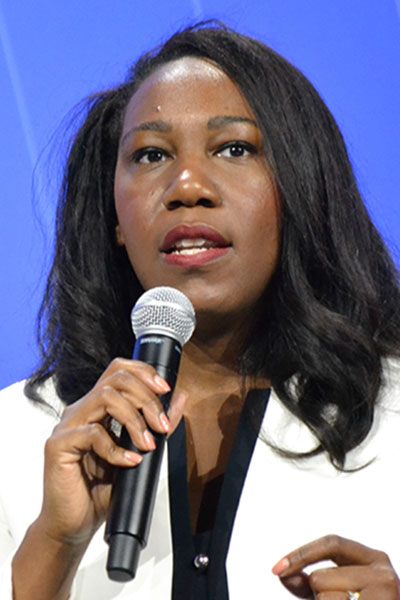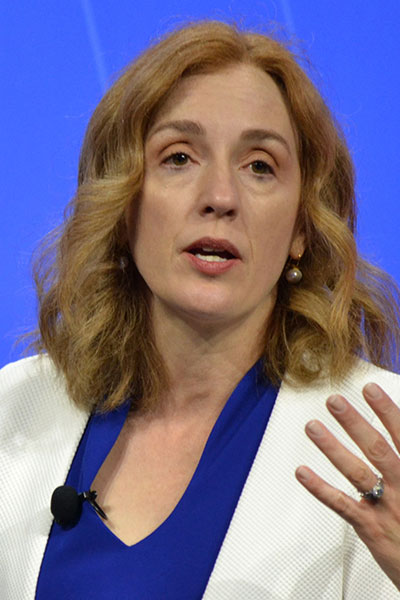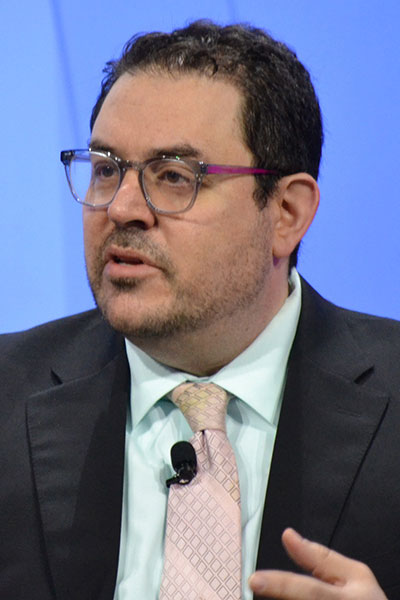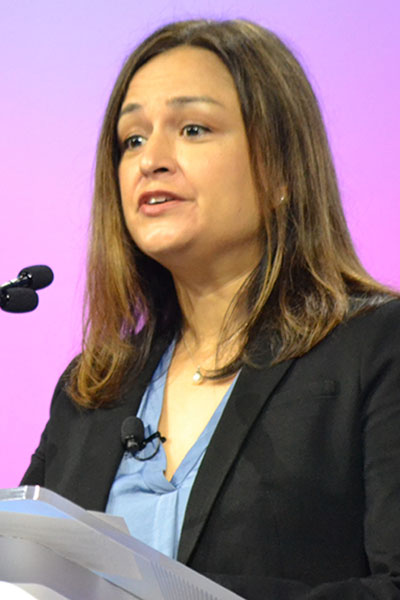A panel convened at the Tuesday morning Keynote session to better understand how health care professionals can get involved in advocacy efforts to stem gun violence.


Reducing Gun Violence through Advocacy and Action by Physicians and Policymakers was led by Emmy Betz, MD, MPH, professor of emergency medicine, University of Colorado School of Medicine; Fatimah L. Dreier, MSc, MBA, executive director of the Health Alliance for Violence Intervention; and Joseph V. Sakran, MD, MPH, MPA, assistant professor of surgery at Johns Hopkins University.
While advocacy is widely considered a core component of professionalism in health care, it is poorly defined in concept, scope, and practice. The panelists discussed their experiences with advocacy and shared advice on how to be an effective advocate. The nonpartisan presentation was geared toward conversations about preventing death and caring for people.
According to Pew Research Center data, there were approximately 50,000 firearm deaths in the U.S. in 2021; 54 percent of those were suicide, 43 percent were homicides, and 3 percent were mass shootings. While mass shootings are a small percentage of gun violence deaths, their numbers are increasing.
“Each one of those statistics, we want to keep in mind, is a person,” said session co-chair Lauren E. Ferrante, MD, MHS, ATSF, assistant professor, Yale School of Medicine.

Dr. Betz said she became interested in advocacy, particularly for suicide prevention, from her experiences with patients. She works for better patient outcomes in terms of counseling, which led to collaborations with the community and firearm owners, retailers, and shooting ranges on suicide prevention. She has also worked to secure financial support for the study of suicide outreach and intervention at the institutional level.
Ms. Dreier has been faced with the effects of gun violence most of her life; her father and brothers were incarcerated, and her community was deeply affected by poverty and violence. She began her professional career in economic development, but she found it challenging to think about economic transformation when violence was so prevalent, so she shifted her direction to focus on gun violence.
Dr. Sakran, himself a victim of gun violence as a teenager, was inspired to become a trauma surgeon because of his experience. He said that once a young victim of gun violence is brought into the operating room, it’s difficult to bring them back to baseline.

“The best medical treatment for those kids is prevention,” he said. “And that’s really what pushed me to think beyond the trauma center and work at the intersection of medicine and policy.”
Dr. Betz said she realized she had no idea how to address suicide and gun violence in a patient-centered way, so she started examining the clinical space to enhance care by finding areas where advocacy and care intersect. For example, a patient with a critical illness could be at an elevated risk for suicide.
“Advocacy doesn’t have to feel big and scary and political,” she said. “As clinicians, we try to stay in a neutral space. But just having conversations with patients and communities and advocating at the hospital level for resources to improve intervention and prevention for suicide, homicide, and domestic violence. That advocacy is important.”
Ms. Dreier encouraged clinicians to spend time connecting with their communities to build trust and take their advocacy outside the hospital.
“It’s incredibly valuable when health professionals show up as part of the community,” she said. “To show that presence is incredibly valuable for building relationships.”
Extend Your Learning Beyond San Francisco with ATS 2025 Conference Highlights

With so many valuable educational opportunities offered during the ATS 2025 International Conference, attendees are often forced to decide which sessions to prioritize. That’s why the Society is offering three ATS 2025 Conference Highlights packages for those unable to attend ATS 2025 San Francisco or attendees interested in continuing their education after the conference. Check out the packages and pick the one that’s right for you. Learn at your own pace, whenever and wherever you are!

